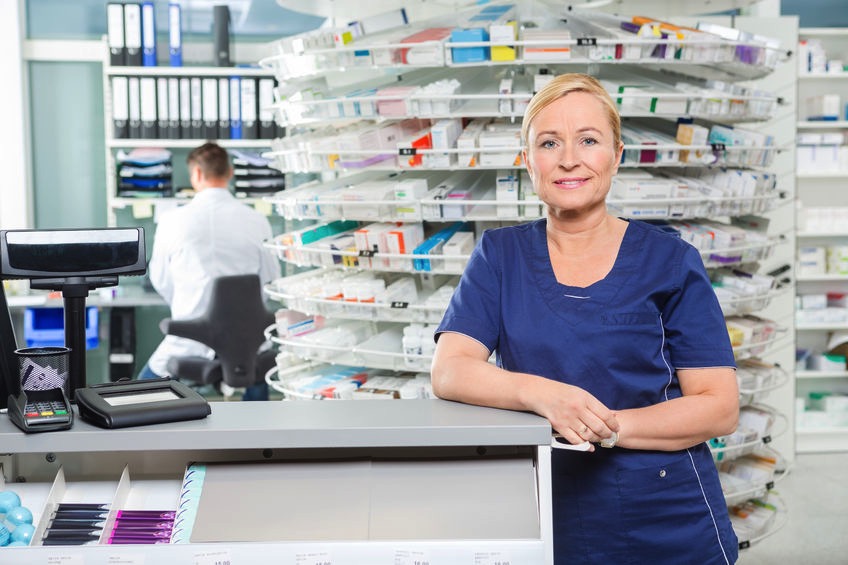Just as with so many other things in life, it takes two to buy a pharmacy. A buyer and a seller are the key ingredients. While brokers and lawyers help make sure everything is in the right measure and neither party gets burned, without a willing buyer and a motivated seller there is no deal.
While the buyer and seller may appear to be adversaries in a zero-sum game, in reality, they may have more in common than meets the eye:
Both the buyer and the seller want the company sold. Both want as painless a process as possible. Both want it over quickly. Neither wants to get very far into the deal and have it fall apart. Neither wants the word to get out that a deal is in process. And neither wants the business to fail.
With so much in common, how could anything go wrong? Simple: buyers and sellers speak different languages. Each is reading for different clues, deciphering vastly different nuances, viewing the whole process through a different set of lenses. And this is exactly as it should be. Friendly skepticism is the ideal in all transactions. Former American President Ronald Reagan used to chide the then Soviet Premier, Mikhail Gorbachev, with the phrase “trust, but verify.” The United States was willing to accept what the Russians said was true only after the United States had verified it to be true. As with nuclear warheads, the same is true for pharmacy purchases.
It goes without saying that the wants and needs of buyers and sellers are sometimes at odds with each other. Knowing these wants and needs, being able to put yourself in the other party’s shoes, will help in reaching a deal that is acceptable to both sides.
Looking Ahead / Looking Behind
As a general overview, the buyer is watching the road ahead. All discussions are filtered through a view of future goals. In contrast, the seller is watching the rearview mirror. All discussions are filtered through historical contexts. While both may be in the same room, they often hear different conversations due to their respective filters. Knowing this and trying to see through the other ‘s filter can make the whole process clearer.
And the buyer and seller want to convey different things: The buyer wants to convince the seller that he or she will take care of the pharmacy. The seller wants to convince the buyer that his or her pharmacy is the best pharmacy. It’s important to remember who the audience is in order to give it what it wants. For example, if the seller is concerned about money and the buyer is only focusing on employee retention, neither will be satisfied.
Win/Win
When buyers and sellers work together, it is easy to develop tunnel vision. While numbers are important, there is more to the deal than money. A deal must work in reality as well as on paper. The repercussions of a sale that doesn’t work out can be far-reaching and long-lasting.
The only good deal is one that is safe for both parties. So keep in mind the reality of the other party’s situation. As the parties continue to work together, the buyer and seller should build a rapport that lends itself to trust. This is necessary for the buyer to be able to comfortably accept the counsel of the seller regarding the safety of the deal. However, this trust should not interfere with healthy skepticism. As a buyer, we will need to check the data. But as well, we also listen to what the seller is telling us.
Trust is important in any situation, and it is absolutely necessary to the process of win/win discussions. Both parties must feel free to offer suggestions and pursue safe outcomes. However, even in situations where trust is established, conversations may turn heated. In such cases, simply take a break from controversial items and leave them for later when cooler heads can prevail. Remember that the goal is to reach the safest deal, not just the one that brings you the most dollar signs.
Trust/Intuition
Trust during the sale of a pharmacy is crucial. But trust isn’t something you just throw out on the table. Trust is earned. In time, a buyer learns to trust a seller and a seller learns to trust a buyer. As the sale process continues, both will reach a level of comfort with the trustworthiness of the other. However, if this doesn’t happen, it may be best to reevaluate if the person you are dealing with this the right fit for you.
Hire and Expert
This article is only an overview. The difference between success and failure is execution on these strategies. If you have not done this countless times, the sale of your business is not the time to learn. Give Colony RX a call today and we can help you decide which of these strategies is most applicable to you.



